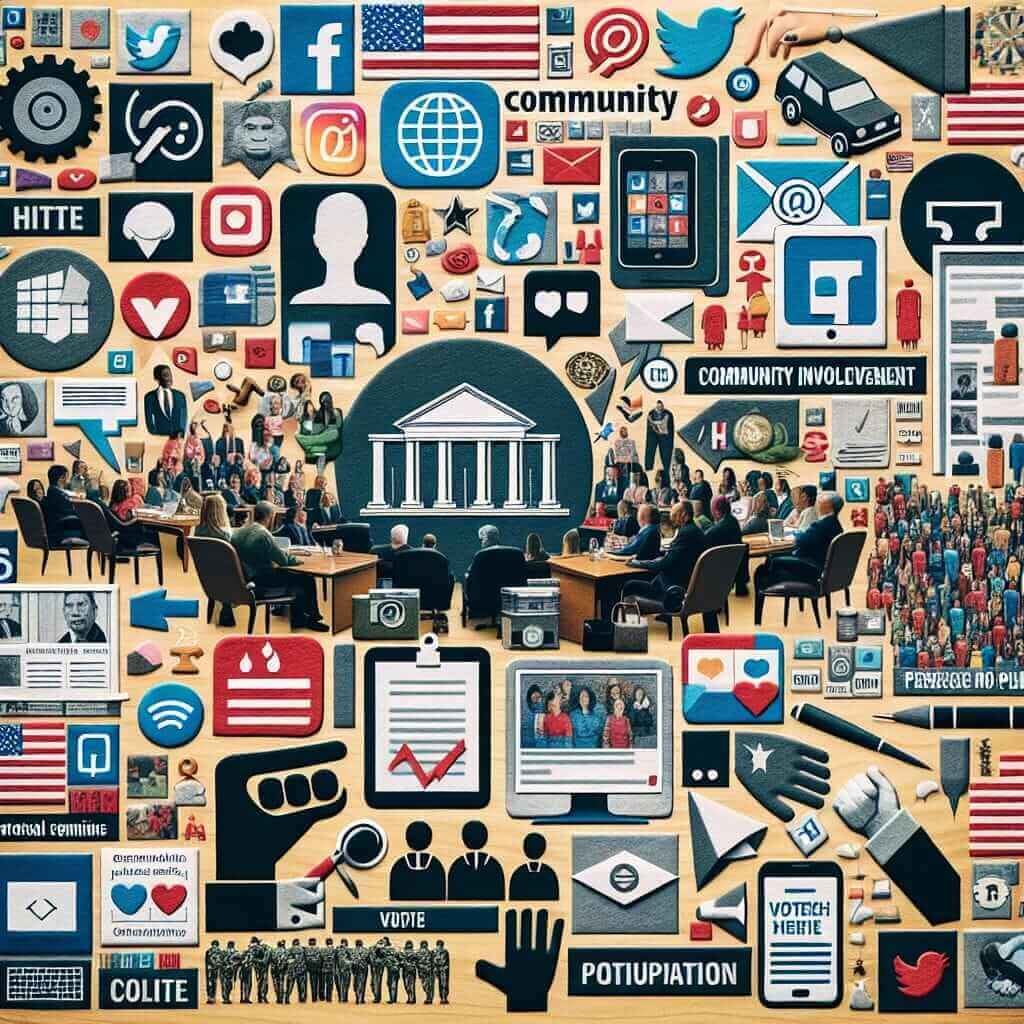The IELTS Reading test is a critical component for candidates looking to achieve a high score. One recurring topic in recent years is the impact of social media on political participation. This article will dissect this theme, present a sample IELTS Reading passage, and provide a series of questions and answers to aid your practice.
Given the relevance and frequent discussion in media, it’s highly probable that such topics will appear in your IELTS test. The aim here is to offer you an experience that closely mirrors the actual test.
Reading Passage and Questions
Sample Reading Passage: Medium Text
Title: The Influence of Social Media on Political Engagement
In the past decade, social media platforms have fundamentally transformed how people engage with politics. Unlike traditional media, social media facilitates direct interaction between political figures and the public. This heightened accessibility has led to a substantive increase in political participation.
One significant impact of social media is the democratization of information. Platforms like Twitter and Facebook enable information dissemination at unprecedented speeds. Consequently, citizens are more informed about political events and issues, empowering them to participate actively in political discussions and decision-making processes.
Social media also fosters political engagement by creating virtual communities. These communities provide a space for like-minded individuals to express their views, organize events, and mobilize people for causes. Studies have shown that online political discussions can lead to real-world political actions, such as attending protests or participating in elections.
Furthermore, the design of social media platforms encourages user interaction through features like commenting, sharing, and “liking.” These interactions not only amplify political messages but also establish a sense of belonging among users. However, there are concerns about the quality of information shared on these platforms. The rampant spread of misinformation can result in polarizing views and undermine democratic processes.
Despite these challenges, the rise of social media has undeniably enhanced political participation. By lowering barriers to entry and fostering community engagement, social media platforms have created more informed and active citizenry.
Questions
Multiple Choice
-
What is one way social media has changed political engagement?
a) By restricting information flow.
b) By facilitating direct interaction between politicians and the public.
c) By eliminating virtual communities. -
What feature of social media encourages user interaction?
a) The absence of commenting.
b) The availability of sharing and “liking” features.
c) The lack of information dissemination.
Identifying Information (True/False/Not Given)
-
Social media limits the speed at which information is disseminated.
a) True
b) False
c) Not Given -
Online political discussions rarely lead to real-world political actions.
a) True
b) False
c) Not Given
Matching Headings
- Match the following headings with the correct paragraphs:
- A: Virtual Communities and Political Engagement
- B: Challenges and Concerns
- C: Democratization of Information
Answer Key
-
b) By facilitating direct interaction between politicians and the public.
- Explanation: The passage mentions that social media enables direct interaction between political figures and the public, increasing political participation.
-
b) The availability of sharing and “liking” features.
- Explanation: Social media platforms encourage user interaction through features like commenting and “liking.”
-
b) False
- Explanation: The passage argues that social media enables information dissemination at unprecedented speeds.
-
b) False
- Explanation: The passage suggests that online political discussions can lead to real-world actions like attending protests or elections.
-
Paragraph 1: C; Paragraph 2: A; Paragraph 3: B
- Explanation: C: Democratization of Information (para 1), A: Virtual Communities and Political Engagement (para 2), B: Challenges and Concerns (para 3).
Common Mistakes
- Skimming Too Quickly: Ensure you understand key ideas before answering questions.
- Guessing Without Rereading: Always reference the passage for factual information.
- Misinterpreting Questions: Pay attention to what the question is asking.
Vocabulary
-
Dissemination (n) /ˌdɪs.əˈmeɪ.ʃən/: The act of spreading information widely.
- Example: The dissemination of misinformation can have serious consequences.
-
Empower (v) /ɪmˈpaʊər/: To give someone the authority or power to do something.
- Example: Social media platforms empower citizens to voice their opinions.
Grammar Focus
Complex Sentences: These are sentences that contain an independent clause and one or more dependent clauses. Understanding complex sentence structures is crucial for high-level reading comprehension.
- Example: Despite these challenges, the rise of social media has undeniably enhanced political participation. (Dependent clause: Despite these challenges, Independent clause: the rise of social media has undeniably enhanced political participation).
Tips for a High IELTS Reading Score
- Practice Regularly: Continuous practice with authentic reading passages helps improve speed and comprehension.
- Enhance Vocabulary: Regularly expanding your vocabulary will aid in understanding complex texts.
- Develop Skimming and Scanning Skills: Learn to identify key information swiftly.
- Answer All Questions: There is no penalty for guessing, so ensure all questions are attempted.

By integrating these practices into your preparation routine, you will be well-equipped to tackle the IELTS Reading test with confidence. Happy studying!